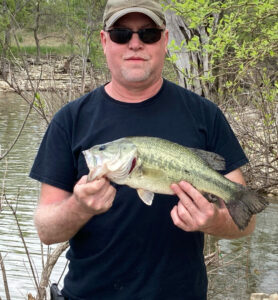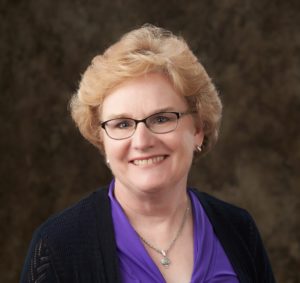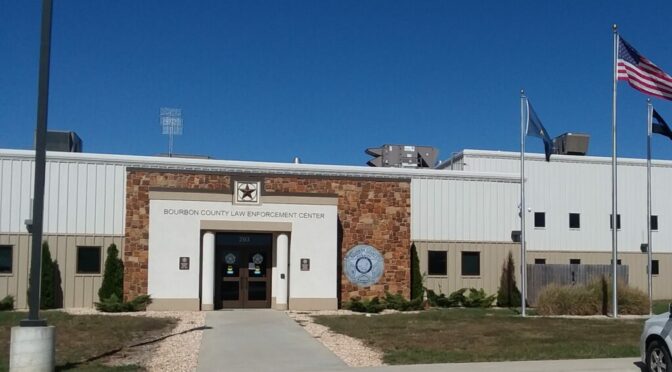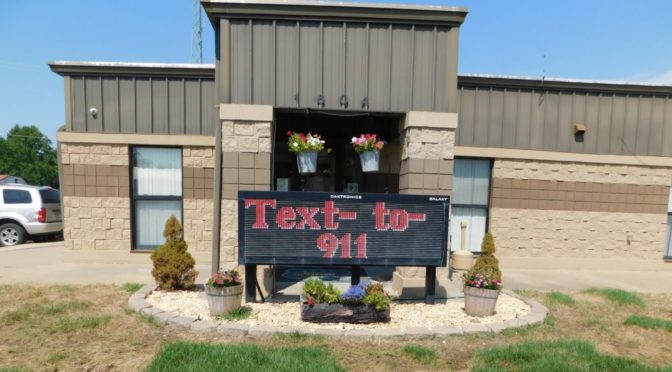All posts by Submitted Story
Obituary of George McReynolds

George Edwin McReynolds, age 79, passed away Saturday, September 11, 2021, at the Medicoldges of Fort Scott. He was born November 11, 1941 in Fort Scott, Kansas, the son of Truman and Ethel Leona Pitts McReynolds.
George worked a Wal-Mart for 32 years and was manager of the electronics department.
He loved to hunt and fish. He enjoyed putting together puzzles and spending time with his two dogs. George loved spending time with family and friends, especially his time with the grandkids.
George is survived by a son, Jason McReynolds and wife Holly, of Fort Scott; four grandchildren, Jacob Cole McReynolds, Zoey Brown, Andrew Brown, and Khya Brown; as well as several nieces and nephews.
He was preceded in death by his wife Janice Lea Spencer McReynolds; a son Jimmy Thompson; parents; one brother, Robert Lowe, two sisters, Jane Loune and Judy Scofield.
There was cremation. Rev. Chuck Russel will conduct graveside services, 10:00 A.M. Friday, September 17, 2021, at the U. S. National Cemetery.
The family will receive friends from 9:00 – 9:45 A.M. before leaving for the cemetery.
Memorials are suggested to the George McReynolds Memorial Fund and may be left in care of the Cheney Witt Chapel, 201 S. Main, P.O. Box 347, Fort Scott, KS 66701. Words of remembrance may be submitted to the online guestbook at cheneywitt.com.
U. S. Senator Jerry Moran’s Weekly Newsletter
|
Following the September 11 attacks, our military servicemembers and veterans in Afghanistan fought honorably to accomplish every mission their country asked of them. Over the past two decades, veterans, their fellow servicemembers and their families have sacrificed greatly while fulfilling their mission in Afghanistan. As the lead Republican of the Senate Committee on Veterans’ Affairs, I want each veteran to know that they not only have my support, but also my admiration and confidence for what they have achieved and what they will go on to achieve for our country.
May we never forget the way we united in the aftermath of the attacks, as one nation under God. And may we renew our commitment to respecting one another, to working together for the common good and to answering the call to serve.
Delivering Remarks Commemorating the 20th Anniversary in McPherson
On Saturday, I participated in McPherson’s ceremonies commemorating 20 years since the September 11 attacks. When I remember that Tuesday, I think about the shared devastation we, as Americans, felt. But, I also remember the way we pulled together to support each other, as Kansans and as a country forever changed. I was humbled to be a part of the ceremonies, and it is my hope that everyone takes a moment to reflect on the events of September 11, remember those who lost their lives in the attacks and rescue efforts, and honor those who have sacrificed through their service since that day.
Thank you to Fire Chief TJ Wyssmann for organizing the event. Thank you also to Mayor Tom Brown for the invitation and kind introduction, and for his service to our nation as a U.S. Marine. Finally, thank you to Police Chief Mikel Golden and to the McPherson community for taking time this weekend to formally honor our servicemembers, veterans and first responders on Saturday’s 20th anniversary.
Bolstering Kansas Leadership in Aviation
Announcing $103 Million in Grants for Kansas Aviation Manufacturers
This week, I announced grants for over 30 Kansas aviation manufacturers through the Aviation Manufacturing Jobs Protection (AMJP) program. These funds will help Kansas aviation employers retain 4,284 employees and was created by legislation I introduced with Congressman Ron Estes.
The aviation manufacturing industry in Kansas plays a critical role in providing our state with high-paying jobs and supporting commercial and general aviation across the country. As our economy continues recovering from the pandemic, having a trained, fully-staffed workforce will help aviation manufacturers recover more quickly and meet the demand for new aircraft and repairs. I’m pleased the AMJP program is providing support to this important industry and their invaluable workforce. Read more in the Wichita Eagle here.
Unveiling the Boeing 777 with WSU, Aerospace Industry and State Leaders
This week, I was also pleased to help welcome a new company to the Wichita community, the Kansas Modification Center (KMC). The KMC, in partnership with Wichita State University’s National Institute for Aviation Research (NIAR) WERX program, will help solidify the Wichita area as a leader in the maintenance, repair and overhaul (MRO) industry. During the welcome ceremony, KMC and NIAR WERX’s first project was on hand, a Boeing 777-300ER passenger aircraft which will be converted into a freighter that meets the growing needs of the e-commerce and express cargo market industry. The official announcement of the new partnership and unveiling of the Boeing 777 aircraft marks a new era for the ‘Air Capital of the World’ and exemplifies the community’s innovative spirit.
The creation of the MRO arena will benefit WSU, the regional aerospace industry and our entire state. This is just the start, and I look forward to seeing all that will be accomplished in the years to come. Thank you to WSU Senior Vice President for Industry & Defense Programs John Tomblin, WSU President Rick Muma, WSU Tech President Sheree Utash, WSU Tech Dean of Aviation and Manufacturing Jim Hall and Kansas Modification Center Owner Jim Gibbs and Partners Dave Murfin and Bryan Mackey for their leadership.
Read more from the Wichita Business Journal here.
Visiting with Kansans at the State Fair
Speaking with the Kansas Farm Bureau
On Saturday morning, I spoke with farmers and ranchers from across the state at the Kansas Farm Bureau’s Agricultural Leadership Breakfast at the State Fair. On the 20th anniversary of September 11, I told them about reading Amanda’s note to her father at Ground Zero following the attacks and the way that day changed my outlook on my role serving as a member of Congress. I also discussed my role on the Agriculture Appropriations committee and the work I do to secure funding for agriculture research projects across Kansas. KFB members and I talked about importance of agriculture to communities in Kansas and the importance of rural Midwest values to the moral compass of the nation as a whole.
I thank Senator Roberts for joining and for his years of service to agriculture and the state of Kansas, and to KFB President Rich Felts for allowing me to join your Ag Leadership Breakfast.
Visiting the Exhibit Buildings
While walking through the exhibits, I stopped by the American Legion booth to thank those working for their commitment to honoring our nation’s veterans. Organizations like the American Legion play a critical role in supporting veterans, which has been especially important over the last month as many have struggled while watching the events in Afghanistan unfold.
I also paid my respects to the many Kansans who have given their lives for our country since September 11 at the Remember Our Fallen exhibit. If you attend the fair in the coming days, I highly recommend visiting this pictorial memorial in the Pride of Kansas building which serves as a poignant reminder that freedom is never free.
Opposing President Biden’s Federal Vaccine Mandates
This week, President Biden announced new federal mandates for the COVID-19 vaccine. There is no doubt that through the success of American science and ingenuity, the COVID-19 vaccine has provided the best shot at ending the pandemic and taking critical steps towards normalcy.
I am vaccinated, and I will continue to urge Kansans to get the shot. These decisions should be left to each individual, and that decision should be guided by conversations with trusted doctors and not dictated by Washington, D.C. Furthermore, this government overreach comes at the expense of small business owners who are trying to strike a balance between keeping their businesses safe and open, and respecting their employees’ personal health decisions. This mandate will also only deepen divisions in the country regarding the vaccines, as well as make it even harder for employers to find workers and cause some employees to drop out of the workforce in protest. I strongly oppose the Biden administration’s extreme government overreach in requiring vaccinations and urge them to focus on solutions that will empower patients to make educated decisions of their own choosing.
Taliban Expands Control in Afghanistan
This past week, the Taliban formed their government and included terrorists previously detained at Guantanamo Bay, currently wanted by the FBI and sanctioned by the United Nations. The Taliban is limiting the number of flights out of Afghanistan that would safely bring Americans home, and I continue to work to ensure those who need to evacuate for their safety are able to do so. The new Taliban is the same as the old Taliban—a terrorist organization. It is important for sanctions to be enforced so long as they collaborate with groups that seek to attack Americans, prevent freedom of travel and reject basic human rights.
Suicide Prevention Awareness
Supporting Our Veterans Following Withdrawal from Afghanistan
As the lead Republican on the Senate Veterans’ Affairs Committee, I continue to be focused on supporting our veterans here at home as some are struggling watching the U.S. withdraw from Afghanistan and marking 20 years since the September 11 attacks. The veterans who answered the call to protect our nation after September 11 deserve our utmost respect and gratitude. These veterans brought justice to Osama bin Laden and served with duty and purpose. They need to know they are not alone and that we will never forget their sacrifice. I encourage each of us to reach out to our friends and loved ones who have served to check-in and make certain they know they are loved and that their service made a difference.
Click here for a list of resources available to veterans and veteran families and caregivers following the recent events in Afghanistan.
Prioritizing Mental Health this National Suicide Prevention Awareness Month
September is National Suicide Prevention Awareness Month, and Friday was World Suicide Prevention Day. To anyone who may be struggling: you are loved and you are not alone. It’s okay to ask for help.
You can call the National Suicide Prevention Lifeline at 1-800-273-8255. Veterans, call 1-800-273-8255, then press 1 to be put in touch with qualified VA responders at the Veterans Crisis Line. Let’s all do our part to check in with our friends, family and loved ones.
Discussing Cyber Security with Emporia State
On Wednesday afternoon, I met with met with Emporia State University faculty and administrators to discuss their pandemic response and several of the university’s academic programming initiatives. As a member of the Senate Appropriations Committee, this discussion provided an opportunity for me to learn about their proposed cyber security program and how this program would support the education of students seeking degrees in Computer Science, Information Systems, Business Data Analytics and other cyber-related degrees, as well as meet the augmented needs of the cyber security industry throughout the Kansas City Metro Area.
Thank you to Emporia State University President Allison Garrett, Vice President of Administration and Finance Diana Kuhlmann, Provost George Arasimowicz, School of Business Dean Ed Bashaw and Government Relations Liaison Greg Schneider for meeting with me this week.
Read more about my visit from the Emporia Gazette by clicking here.
Meeting with Civic Club Members
Hays
I appreciated the opportunity to meet with civic club members in Hays on Tuesday. The Lions Club members and I touched on a number of issues, including their concerns about the ability of elected officials to work together and the importance of finding common ground. I heard form Ellis County members about their drought and irrigation concerns, and discussed how my work on the Senate VA Committee will continue to operate with veterans’ mental and physical health needs as a top priority. I also shared with those at The Press how my casework team has been working to help those in need following the administration’s failed withdrawal from Afghanistan. Thank you to everyone who spent their afternoon speaking with me.
Marion
I joined the Marion Kiwanis on Wednesday where we discussed the importance of civic clubs in communities across Kansas and how local government is best suited to serve its community’s needs. Kiwanis members posed questions regarding my work helping small businesses get the resources they need, and we discussed the importance of access to rural health care, pharmacies, education, technology and broadband. We also had a chance to discuss the importance of agriculture and farming to keeping small town economies and rural America alive.
Thank you to Kiwanis President Chris Mercer and Treasurer Gene Winkler, Superintendent of Marion-Florence Schools Aaron Homburg and to everyone who shared their thoughts and concerns with me yesterday. Thank you to Café 256 for hosting our conversation and to Johsie Reid for letting me stop by the newly opened JR Hatters Mercantile on Main Street while I was in town.
MRIGlobal’s Work for National SecurityI I visited MRIGlobal in Kansas City on Thursday to see the innovative research and development work being done to support our national security. MRIGlobal is a national leader in countering chemical and biological weapons of mass destruction. They are also working to address global biological threats, like COVID-19, and have connected with the Air Force and other federal partners as our nation struggled with this pandemic. MRIGlobal’s work to defend our nation from chemical and biological attacks and protect Americans facing a global pandemic is to be commended, and I was pleased to visit with their leadership to offer my support. I want to thank the leadership team at MRIGlobal for hosting me, and I look forward to working with them in the future.
ATF Director Nomination Withdrawn
This week, the nomination of David Chipman – who has an extensive track record of pushing a radical and partisan anti-Second Amendment agenda – to be Director of the Bureau of Alcohol Tobacco and Firearms (ATF) was withdrawn. The Second Amendment states that the right of the people to keep and bear arms shall not be infringed. Yet, the Biden administration continues to push its gun control agenda against law-abiding gun owners. Since entering office, President Biden has made every effort to limit the ability of gun owners and retailers to exercise their rights under the Second Amendment, and this includes the nomination of David Chipman to head the ATF. I remain committed to preserving the rights enshrined in the Constitution under the Second Amendment and will continue to oppose any nominee who will not do the same.
Visiting WaKeeney
My morning view in WaKeeney on Tuesday. Thank you to everyone I visited with while I was in town.
KS Receives Eco Devo Recognition
Governor Laura Kelly Announces Kansas Receives National Economic Development Recognition
~ Kansas breaks into Area Development’s Top 20 States for Doing Business recognition~
TOPEKA – Governor Laura Kelly today announced Kansas has received Area Development’s Top 20 States for Doing Business recognition for 2021 – the first time in Kansas history the state has made the Top 20 list.
“Our state’s positive economic development momentum is undeniable, and the rest of the country is taking notice,” Governor Kelly said. “This designation – in addition to our record-breaking economic success, our receipt of Area Development Magazine’s Gold Shovel Award, and being named as the top business climate in the West North Central region of the United States – is further proof our efforts are paying off in a big way.
“My administration will continue rebuilding our economic development tools, fully funding our schools, investing in much-needed infrastructure projects, and expanding high speed internet access to build on the qualities that make Kansas the best state to live and to do business.”
Area Development conducts an annual survey of site consultants and location experts on specific location considerations that matter most in corporate decision-making. States are then ranked in 13 categories, including the overall cost of doing business, business incentive programs, workforce training programs and more.
After winning the coveted Gold Shovel award earlier this year, the Top 20 States for Doing Business accolade further validates Kansas as the best place to do business. Since 2019, Kansas has seen over $6 billion in new business dollars invested in the state, and over 28,000 jobs created.
As the state’s lead economic development agency, the Department of Commerce works to help businesses and communities grow in Kansas. Making it easy and worthwhile for businesses seeking to relocate to Kansas is a key focus for Commerce’s business recruitment teams.
“We have a new way of doing business in Kansas, and we’re getting results,” Lieutenant Governor and Commerce Secretary David Toland said. “Kansas has set the standard for growth and recovery in the wake of COVID-19. We’ve applied our proven approach to attracting new businesses, and it’s led to one of the most successful capital investment streaks in the history of our state. This is what happens when an administration is serious about building a strong economy.”
To see the most recent business successes in Kansas, check out the Kansas Department of Commerce website.
Area Development is a leading corporate site selection and facility planning resource. The full report on Area Development’s Top 20 States for Doing Business awards can be found here.
About the Kansas Department of Commerce
As the state’s lead economic development agency, the Kansas Department of Commerce strives to empower individuals, businesses and communities to achieve prosperity in Kansas. Commerce accomplishes its mission by developing relationships with corporations, site location consultants and stakeholders in Kansas, nationwide and worldwide. Our strong partnerships allow us to help create an environment for existing Kansas businesses to grow and foster an innovative, competitive landscape for new businesses.
Sept. 16 Chamber After Hours: Bartelsmeyer Jewelry
|
Join us for this week’s
After Hours Chamber Coffee hosted by
Bartelsmeyer Jewelry
Downtown Fort Scott, KS
All attendees are respectively asked to wear a mask to this event except when eating or drinking.
Thursday, September 16th
5:15 pm until 6:30 pm
New location:
22 N. Main St., Downtown Fort Scott
Click Here to visit their Facebook Page.
Click Here to visit their Website.
|
|
 |
|
 |
|
|
|
|
|
|
Obituary of Toby Adams

Toby Lane Adams was born in El Dorado, Kansas on February 7th, 1969, to James Richard and Sharon Lynn (Kelley) Adams. He passed away on Sunday, September 5th, 2021, at Wesley Medical Center in Wichita, Kansas after a 28-day battle with Covid. Toby attended school in Fort Scott, Kansas, El Dorado, Kansas and Altoona, Kansas. After high school he served in the Army as a munitions specialist and was honorably discharged in 1997. Later in life Toby completed his degree in Electrical Engineering from Pittsburg State University in 2008.
Toby loved everything outdoors. Fishing, hunting, snorkeling, bike riding, and gardening. His final years were spent working in Fort Scott, Kansas as an Electrical Engineer at a local printing manufacturer for just over 20 years. With Toby’s entire being, he embodied the unwritten “Adams Creed”.
- Work hard, no matter how taxing the task at hand; see it through until the end.
- Play harder, especially with the littles! Take time to enjoy a good meal, catch a few crappie, watch the birds, enjoy the outdoors, or add to your antique collection. Life is too short to miss those moments of joy.
- Rest when needed because tomorrow you have to work.
- You are your own worst critic; don’t let others add to your baggage.
- Always be willing to learn more.
- Failure is not an option; you should have learned more the first time.
- Speak the truth, but don’t always show your hand.
- When you do show your hand, be direct and to the point. Yeah…. probably not going to sugar coat it.
- Keep your life private except to those most loyal to you. Then share as needed.
- Stand up for what you believe in, even if it means standing alone.
- Save that money…….well, unless you need a new toy.
- Friends are family you choose for yourself.
- When you love, love fiercely!
Toby was preceded in death by his father, maternal grandparents, and paternal grandparents. Survivors include a son, Peyton Adams; mother, Sharon Smith; siblings Jamie (Bob) Beckham, Dean (Felicia) Adams, Joel Smith, and Kirk Adams; several nieces and nephews; and multiple close friends whom Toby considered family.
A memorial service will be held on Saturday, November 6th, 2021, at Gunn Park Shelter house #1 at 10:00 a.m.
Casual clothing is encouraged and those that ride the Gunn Park trails are asked to wear riding gear and bring their bikes for Toby’s final trail ride and cold beverage following the service.
Private burial will be at a later date TBD.
In lieu of flowers, donations can be made to Gunn Park Trails, payable to City of Fort Scott, and may be left in care of the Cheney Witt Chapel, PO Box 347, 201 S. Main, Ft. Scott, KS 66701. Words of remembrance may be submitted to the online guestbook at cheneywitt.com.
Obituary of James “David” Tucker

Rev. James “David” Tucker, age 91, a resident of Fort Scott, Kansas, passed away on Saturday, September 11, 2021, at his home. He was born in Gravette, Arkansas, on December 20, 1929, to Charles Kenyan and Nora Belle Haddock Tucker, the youngest of 14 children. David gave his life to Christ as a teenager, and from that moment forward, his life was fully devoted to Christian service.
At the age of 16, he cleaned out a vacant church in Maysville, Arkansas, and began to hold revival services. During one of his sermons, the woodstove flue caught fire. He instructed everyone to move outdoors, where he continued his sermon as the church burned to the ground. He later rebuilt the church, and pastored there while raising his family.
In addition to his years as a traveling evangelist, he also held pastorates at the Church of God (Holiness) at 6th and Wilson Streets in Fort Scott; El Monte, California; Nevada, Missouri; Clarksburg Valley Chapel in Fort Scott; and Miami, Oklahoma.
He then returned to pastor at Clarksburg Valley Chapel, until his retirement at 89 years of age.
He never lost his passion to see others come to Christ.
David was known for his extensive knowledge and memorization of the Bible, and for his powerful prayers. David spent countless nights praying for his family, and because of his unwavering faith, his family has witnessed many miracles of healing and protection.
David also was a skilled carpenter, and built many houses throughout the years.
David married Betty Jean Bergen on June 27, 1951, in Neosho, Missouri. They were a shining example of commitment and teamwork as they served together at their pastorates over the years. Together, they raised six children. They remained sweethearts until the end, and could usually be found holding hands. They had just celebrated their 70th Anniversary in June.
David has an immediate family of over 60 members, who continue to gather in their homes for holidays. In addition to his wife, Betty Jean, survivors include 3 sons: Roger (Genie) Tucker of Independence, Missouri; Mark (Brenda) Tucker, and Joe (Belinda) Tucker, both of Fort Scott; daughters Carma Tucker of Fort Scott, and Kerri (Kirk) Bland of El Dorado Springs, Missouri; and a daughter-in-law, Carolyn Tucker of Fort Scott. Also surviving are 17 grandchildren and their spouses: Jonathan (Carlie) Tucker, Jessica (Chad) Rahe, Johanna (Chet) Parry, Jennifer (Matt) Snider, Whitney (Kyle) Rogers, Bethany (Brad) Blubaugh, Mariam (Levi) Self, Aaron (Cynthia) Tucker, Landon (Nancy) Simons, Jayce (Kristyn) Simons, Dakota Simons, Tucker Grigsby, Kasi Bland (fiance John Simrell), Alyson Bland, Joely (Scott) Womeldorff, Monica (Jared) Snyder, and Miles (Emmah) Dikeman; and 29 great-grandchildren, with one on the way.
He was preceded in death by his parents, 8 brothers, 5 sisters, and his son James “Jimmy” Tucker, who passed away in February of 2021.
Rev. Dennis Bergen, assisted by Rev. Kyle Rogers, will conduct funeral services at 10:00 AM, Wednesday, September 15, 2021, at Parkway Church of God (Holiness) in Fort Scott, Kansas.
A graveside service will be held at 3:30 PM, on Wednesday at the Banner Nazarene Church Cemetery in Splitlog, Missouri.
In lieu of flowers, memorial contributions are suggested to Fort Scott Christian Heights, and may be left in care of the Cheney Witt Chapel at 201 S Main Street or PO Box 347, Fort Scott, KS 66701. Words of remembrance may be shared to the online guestbook at cheneywitt.com.
September—Suicide Prevention Month

September is National Suicide Prevention month. Suicide isn’t something we associate much with September, nor is it a topic we actively discuss. However, suicide is a troubling public health issue that leaves a lasting impact on families and communities. Between 1999 and 2019, the suicide death rate increased 33%.
One of our most vulnerable populations to suicide is our older adults. Suicide is a direct reflection of mental illness – another topic that is continually swept under the rug, especially for older adults. Living in a rural community seems to be an additional contributor to its occurrence.
Some of my previous articles have focused on stress levels, isolation, having a purpose in life and how they are important factors to our mental health. When either of these are seemingly out of control, our mental health declines – often in the form of depression. Research has shown a strong link between suicide and depression.
While depression can exist at different intervals over the lifespan, older adults may experience multiple factors at the same time contributing to depression, such as: chronic medical illness, chronic pain, loss of physical functioning, prior depressive episodes, reliving bad experiences, recent loss, and dementia to name a few.
Other risk factors include social isolation and family history with one of the most prevalent factors being loneliness. Living a distance from family while trying to cope with the death of a lifelong spouse, close family or friends, can be a struggle. Research has shown that bereavement experienced by older adults can often trigger major depression.
Suicide rates among older adults are underreported. This generation tends to use passive self-harm behaviors that may result in death, such as refusing food, medications or liquids which are rarely recorded as suicide attempts. These paths are much less obvious than a medication overdose, for example.
A person who is at risk of suicide is rarely clear of their intentions. Such an individual is experiencing a pain that is difficult to talk about. Signs of suicidal thoughts or tendencies can include increased feelings of anxiety and hopelessness, withdrawal from people or activities they ordinarily enjoy, negative thoughts or a preoccupation with death, strong feelings of guilt or low self-esteem. These and other signs may be recognized by staying in tune through casual conversation, paying attention to the content of letters and notes or noting changes in actions or behaviors.
Rushing to create or change wills or other legal documents can sometimes be an indication of a wish for life to end. We should all take the legal steps necessary to make sure our wishes are met at end-of-life. Unfortunately, we humans often procrastinate in getting our end-of-life documents in order. When discussions dwell on these legal documents, take time to encourage conversations that can more clearly define the reasoning behind those actions.
As we age, we are bound to experience periods of feeling bad or go through loss and grief. So often there is a belief that it’s a normal part of aging. We need to recognize we can recover from those periods and that sometimes those feelings need to be targeted by professionals. None of us should feel like we are swimming in the middle of the ocean with no life preserver.
Day-to-day activities we can do to improve our mental health include regular exercise, good nutrition, taking medications as prescribed, contact with other people, staying hydrated, and regular visits with primary care providers.
We should all assess our own mental health on a regular basis. Do not hesitate to visit with your care provider if there is something you can’t seem to get around on your own. He/she may help in determining if it is a physical or medication related effect you are feeling. If those pieces to the puzzle are ruled out, it’s okay to seek out a mental health professional.
If you or someone you know may be experiencing suicidal tendencies, contact Southeast Kansas Mental Health with offices in Humboldt, Iola, Chanute, Fort Scott, Pleasanton and Yates Center. Resources to assist with difficult conversations are available at www.suicideispreventable.org. The National Suicide Prevention Hotline is 1-800-273-8255.
K-State Research and Extension is an equal opportunity provider and employer.
Letter to the Editor: Josh Jones
Bourbon County Dems Meet Sept. 19
|
|











